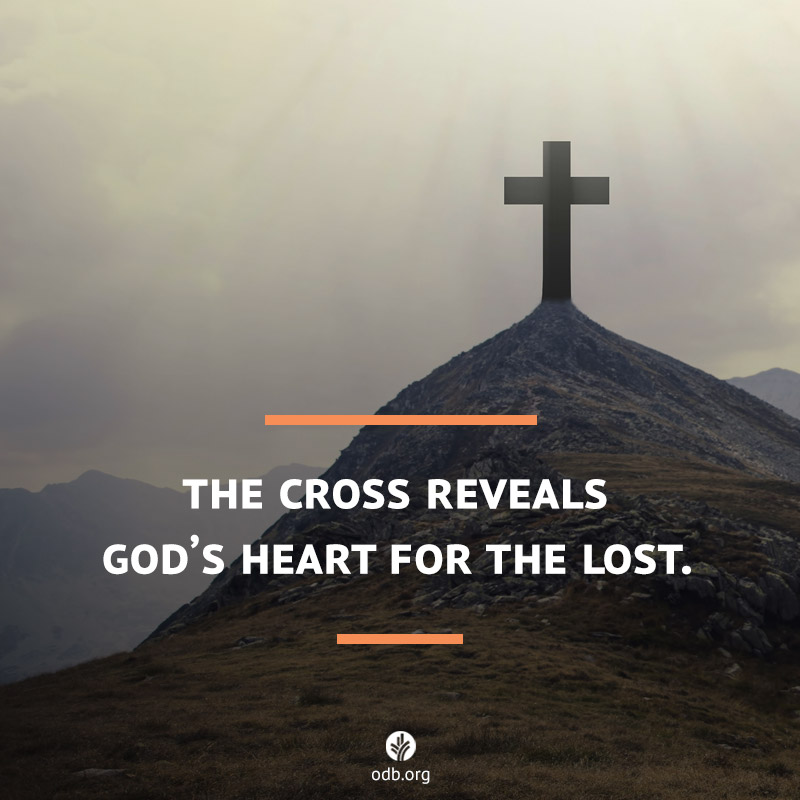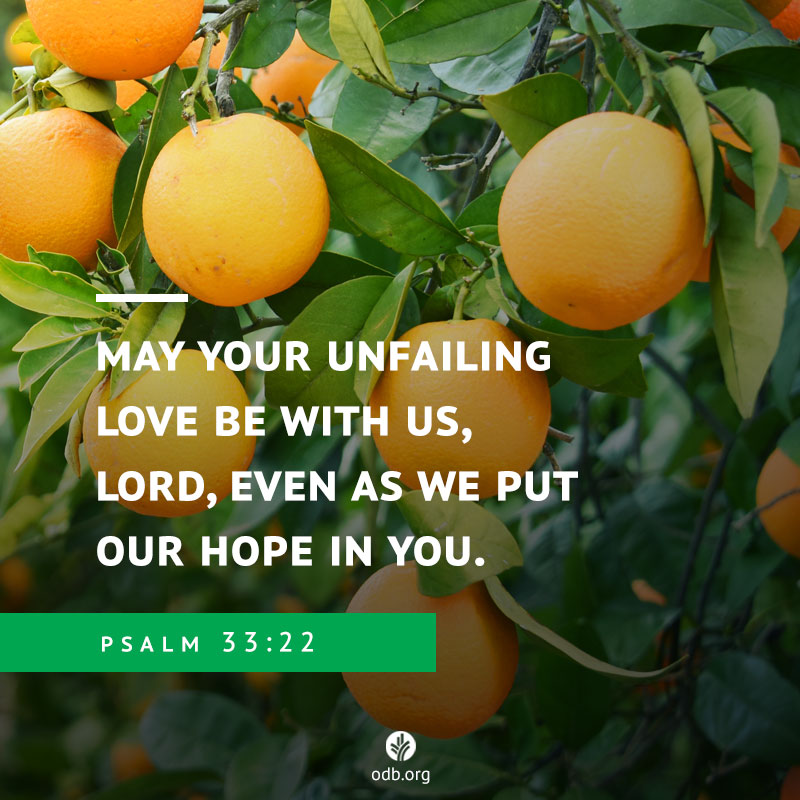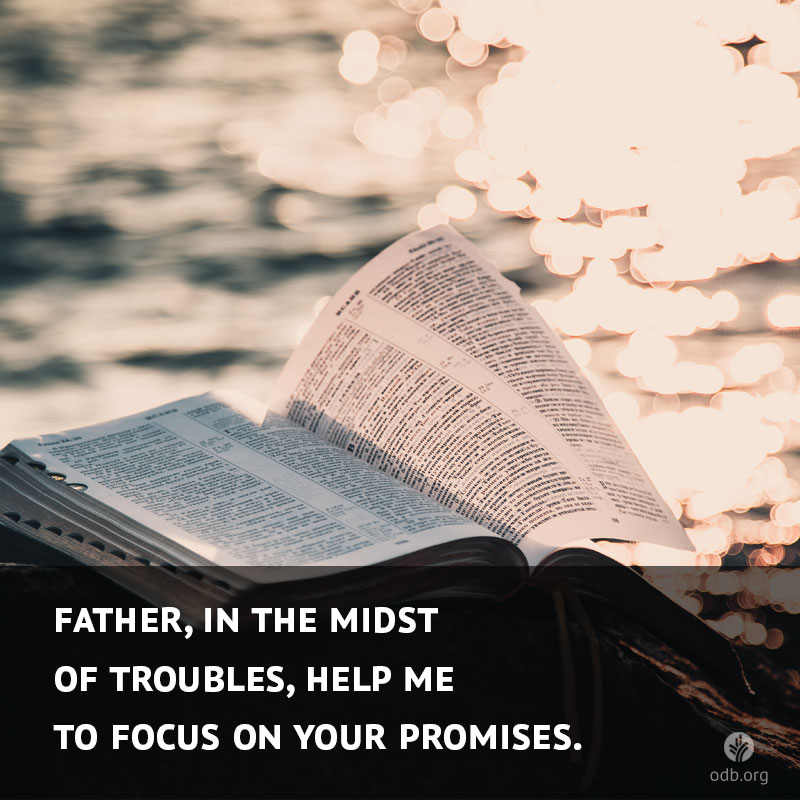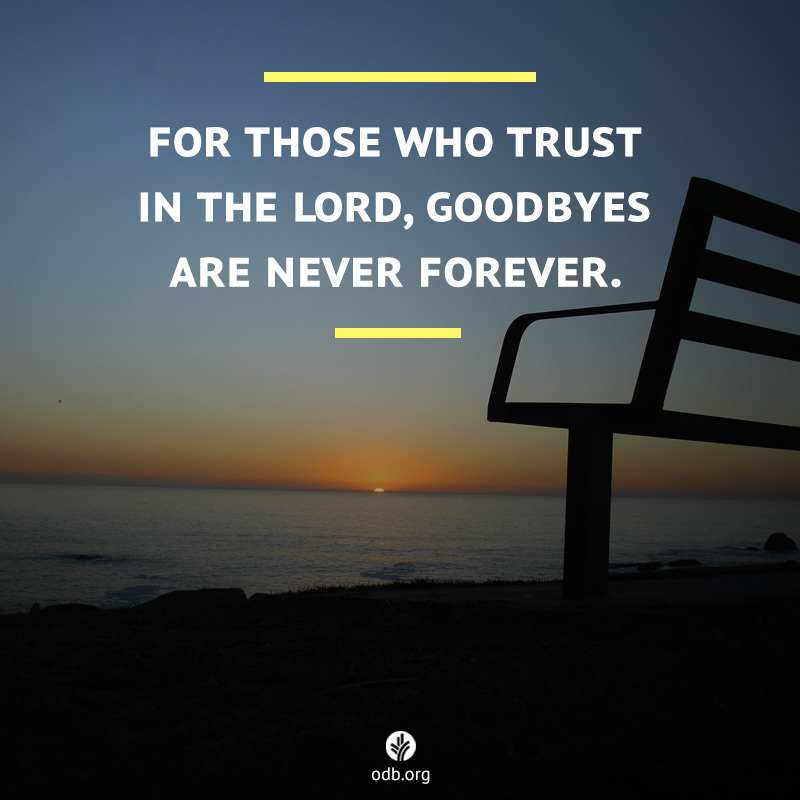Celebrating Fathers' Day
This Fathers’ Day, why not get a copy of Spiritual Living in a Secular World: Applying the Book of Daniel Today for yourself, or for fathers you know? Discover how you can resist the pressure of today’s culture of greed and compromise, and how you can help the younger generation to stay faithful. We’d like to offer you a copy…

Interrupted Fellowship
The loud, sorrowful cry pierced the dark afternoon air. I imagine it drowning out the sound of mourning from friends and loved ones gathered at Jesus’s feet. It must have overwhelmed the moans of the dying criminals who flanked Jesus on both sides. And surely startled all who heard it.
“Eli, Eli, lema sabachthani!” Jesus cried out in agony and in utter despondency as He hung on that cross of shame on Golgotha (Matthew 27:45–46).
“My God,” He said, “my God, why have you forsaken me?”
I cannot think of more heart-wrenching words. Since eternity, Jesus had been in perfect fellowship with God the Father. Together they had created the universe, had fashioned mankind in their image, and planned salvation. Never in the eons past had they not been in total fellowship with each other.
And now, as the anguish of the cross continued to bring devastating pain on Jesus—He for the first time lost the awareness of God’s presence as He carried the burden of the sins of the world.
It was the only way. Only through this time of interrupted fellowship could our salvation be provided for. And it was only because Jesus was willing to experience this sense of being forsaken on the cross that we humans can gain fellowship with God.
Thank You, Jesus, for experiencing such pain so we could be forgiven.

When Words Fail
Not long ago I sent my wife Cari a text message using only voice prompts. I was on my way out the door to give her a ride home from work and intended to send the words, “Where would you like me to pick you up, old gal?”
Cari doesn’t mind my calling her “old gal”—it’s one of the affectionate nicknames we use around the house. But my cell phone didn’t “understand” the phrase, and sent the words “old cow” instead.
Fortunately for me, Cari immediately understood what had happened and found it funny. She later posted my text message on social media and asked, “Should I be offended?” We were both able to laugh about it.
My wife’s loving response to my awkward words that day makes me think about God’s loving understanding of our prayers. We may not know what to say when we pray or even what to ask for, but when we belong to Christ, His Spirit within “intercedes for us through wordless groans” (Romans 8:26) and lovingly helps us articulate our deepest needs before Him.
Our heavenly Father doesn’t stand at a distance waiting for us to get our words right. We can come to Him with every need, assured that He understands and receives us with love.

Gazing at the Horizon
Almost as soon as the ferryboat started to move, my little daughter said she felt ill. Seasickness had already begun to affect her. Soon I was feeling queasy myself. “Just stare at the horizon,” I reminded myself. Sailors say this helps to regain a sense of perspective.
The Maker of the horizon (Job 26:10) knows that sometimes in life we may become fearful and restless. We can regain perspective by focusing on the distant but steady point of our destiny.
The writer of Hebrews understood this. He sensed discouragement in his readers. Persecution had driven many of them from their homes. So he reminded them that other people of faith had endured extreme trials and had been left homeless. They endured it all because they anticipated something better.
As exiles, these readers could look forward to the city whose architect is God, the heavenly country, the city God prepared for them (Hebrews 11:10, 14, 16). So in his final exhortations, the writer asked his readers to focus on God’s promises. “For here we do not have an enduring city, but we are looking for the city that is to come” (13:14).
Our present troubles are temporary. We are “foreigners and strangers on earth” (11:13), but gazing at the horizon of God’s promises provides the point of reference we need.

The Last Call
After serving his country for two decades as a helicopter pilot, James returned home to serve his community as a teacher. But he missed helicopters, so he took a job flying medical evacuations for a local hospital. He flew until late in his life.
Now it was time to say goodbye to him. As friends, family, and uniformed co-workers stood vigil at the cemetery a colleague called in one last mission over the radio. Soon the distinctive sound of rotors beating the air could be heard. A helicopter circled over the memorial garden, hovered briefly to pay its respects, then headed back to the hospital. Not even the military personnel who were present could hold back the tears.
When King Saul and his son Jonathan were killed in battle, David wrote an elegy for the ages called “the lament of the bow” (2 Samuel 1:17). “A gazelle lies slain on your heights,” he sang. “How the mighty have fallen!” (v. 19). Jonathan was David’s closest friend and brother-in-arms. And although David and Saul had been enemies, David honored them both. “Weep for Saul,” he wrote. “I grieve for you, Jonathan my brother” (vv. 24, 26).
Even the best goodbyes are oh-so-difficult. But for those who trust in the Lord, the memory is much more sweet than bitter, for it is never forever. How good it is when we can honor those who have served others!
